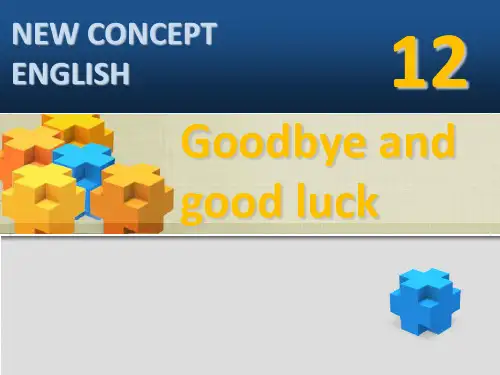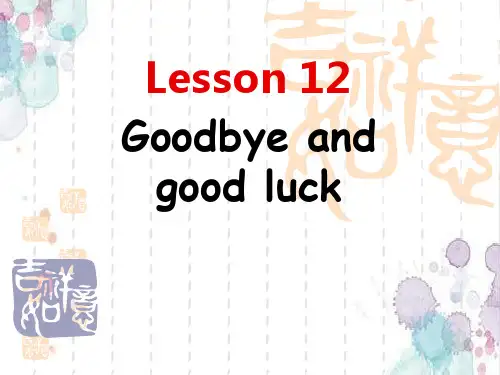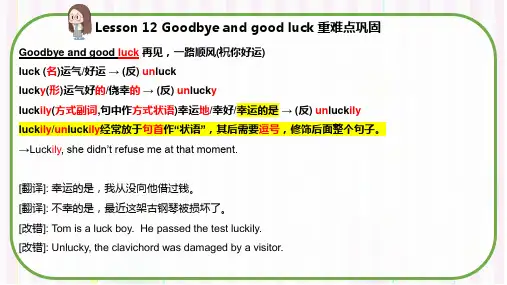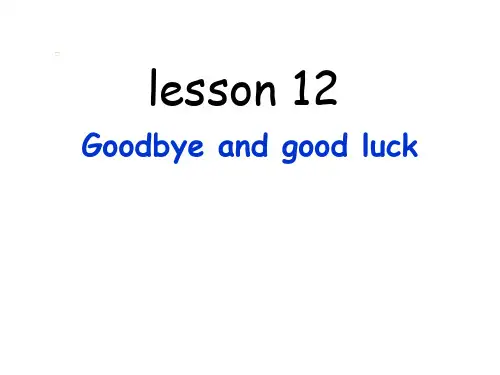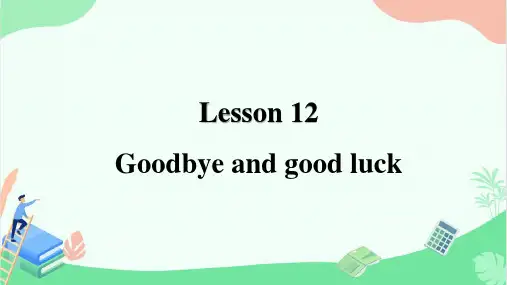新概念2 第12课 课件
- 格式:ppt
- 大小:962.00 KB
- 文档页数:30
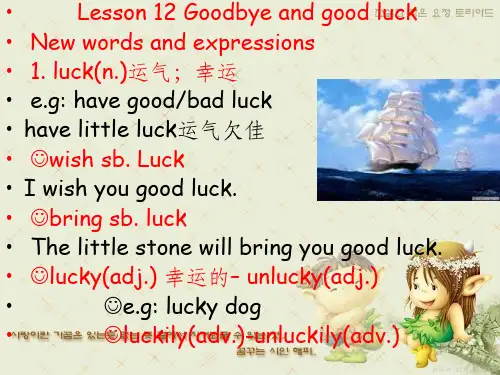
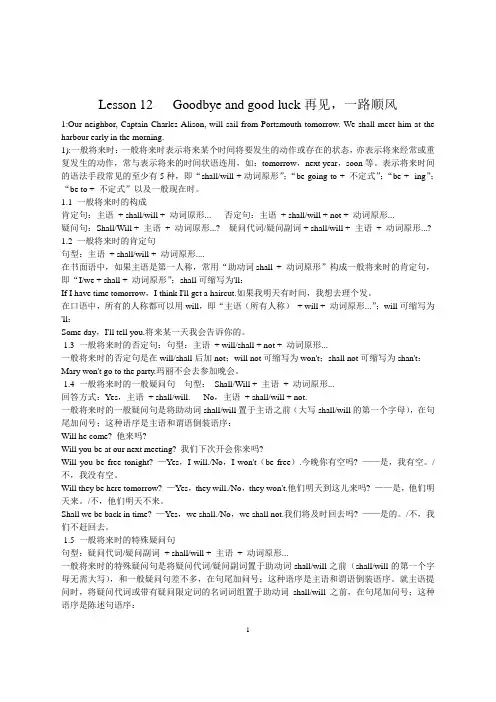
Lesson 12 Goodbye and good luck 再见,一路顺风1:Our neighbor, Captain Charles Alison, will sail from Portsmouth tomorrow. We shall meet him at the harbour early in the morning.1):一般将来时:一般将来时表示将来某个时间将要发生的动作或存在的状态,亦表示将来经常或重复发生的动作,常与表示将来的时间状语连用,如:tomorrow,next year,soon等。
表示将来时间的语法手段常见的至少有5种,即“shall/will + 动词原形”;“be going to + 不定式”;“be + -ing”;“be to + 不定式”以及一般现在时。
1.1 一般将来时的构成肯定句:主语+ shall/will + 动词原形... 否定句:主语+ shall/will + not + 动词原形...疑问句:Shall/Will + 主语+ 动词原形...? 疑问代词/疑问副词 + shall/will + 主语+ 动词原形...?1.2 一般将来时的肯定句句型:主语+ shall/will + 动词原形....在书面语中,如果主语是第一人称,常用“助动词shall + 动词原形”构成一般将来时的肯定句,即“I/we + shall + 动词原形”;shall可缩写为'll:If I have time tomorrow,I think I'll get a haircut.如果我明天有时间,我想去理个发。
在口语中,所有的人称都可以用will,即“主语(所有人称)+ will + 动词原形...”;will可缩写为'll:Some day,I'll tell you.将来某一天我会告诉你的。
1.3 一般将来时的否定句:句型:主语+ will/shall + not + 动词原形...一般将来时的否定句是在will/shall后加not;will not可缩写为won't;shall not可缩写为shan't:Mary won't go to the party.玛丽不会去参加晚会。
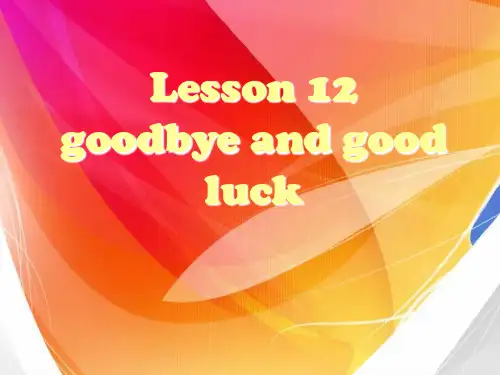

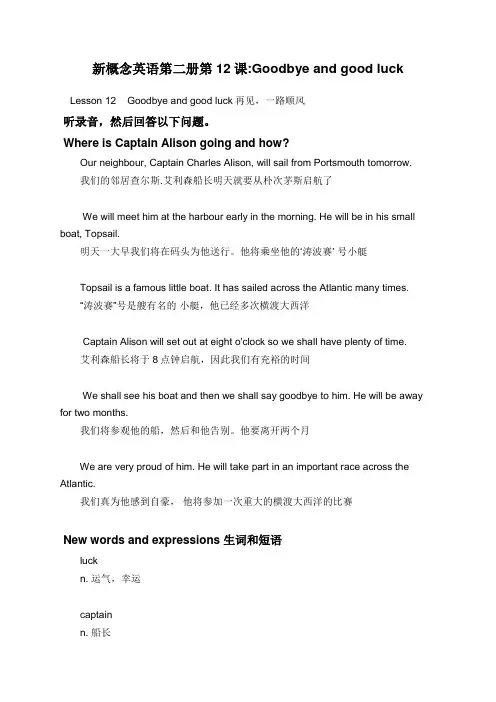
新概念英语第二册第12课:Goodbye and good luckLesson 12 Goodbye and good luck再见,一路顺风听录音,然后回答以下问题。
Where is Captain Alison going and how?Our neighbour, Captain Charles Alison, will sail from Portsmouth tomorrow.我们的邻居查尔斯.艾利森船长明天就要从朴次茅斯启航了We will meet him at the harbour early in the morning. He will be in his small boat, Topsail.明天一大早我们将在码头为他送行。
他将乘坐他的‘涛波赛’ 号小艇Topsail is a famous little boat. It has sailed across the Atlantic many times.“涛波赛”号是艘有名的小艇,他已经多次横渡大西洋Captain Alison will set out at eight o'clock so we shall have plenty of time.艾利森船长将于8点钟启航,因此我们有充裕的时间We shall see his boat and then we shall say goodbye to him. He will be away for two months.我们将参观他的船,然后和他告别。
他要离开两个月We are very proud of him. He will take part in an important race across the Atlantic.我们真为他感到自豪,他将参加一次重大的横渡大西洋的比赛New words and expressions 生词和短语luckn. 运气,幸运captainn. 船长sailv. 航行harbourn. 港口proudadj. 自豪的importantadj. 重要的Notes on the text课文注释1 Captain Charles Alison。
